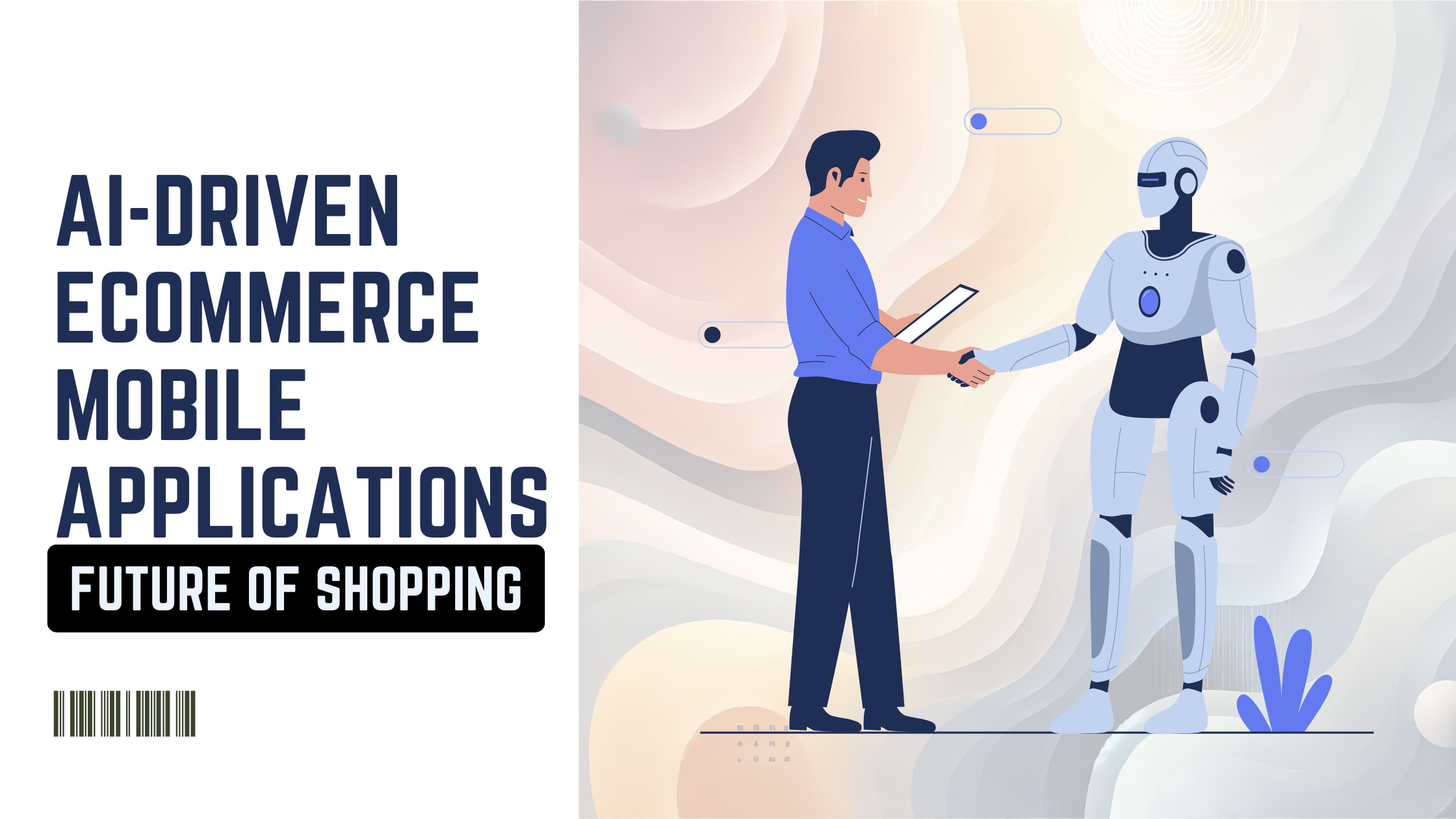
The evolution of eCommerce is rapidly advancing, and the future of shopping is being shaped by Artificial Intelligence (AI). Mobile apps are transforming the way consumers shop by providing personalized experiences, improving customer service, and making the entire process more intuitive. AI-powered eCommerce mobile apps are set to revolutionize the industry, offering businesses a competitive edge and providing customers with an enhanced shopping experience.
AI has numerous applications in the eCommerce space, all of which are designed to create a more personalized, efficient, and engaging experience for customers. Let’s explore some of the main areas where AI is having a significant influence:
1. AI-Powered Personalization
AI is revolutionizing eCommerce by offering highly personalized shopping experiences to customers. By analyzing customer behavior and preferences, AI can offer tailored recommendations, product suggestions, and personalized marketing messages. This level of customization increases customer satisfaction and drives sales, as customers are more likely to buy products that match their needs and interests.
Voice assistants powered by AI are gaining widespread popularity in the eCommerce industry. These virtual assistants help customers search for products, make purchases, and track orders, all through voice commands. Voice assistants make shopping more convenient and hands-free, allowing customers to shop while multitasking or on the go.
AI-driven image recognition allows customers to effortlessly locate products by simply uploading images. This visual search feature makes it easier for consumers to find exactly what they are looking for, increasing the likelihood of a purchase. Businesses can also use image recognition to monitor inventory and detect counterfeit products.
AI-driven predictive analytics helps businesses analyze data and predict future trends. In eCommerce, this technology can predict customer behavior, such as which products are likely to be in demand or when a customer is most likely to make a purchase. Predictive analytics helps businesses optimize their inventory, marketing campaigns, and pricing strategies.
AI-driven chatbots are revolutionizing customer service in eCommerce. These chatbots can instantly respond to customer inquiries, provide product recommendations, and assist with order tracking. By providing quick and accurate responses, AI chatbots enhance the customer experience and reduce the need for human intervention.
Virtual events and live shopping features are gaining popularity in the eCommerce industry. Through platforms like Instagram Reels or live streaming, businesses can engage customers in real-time, showcasing products, answering questions, and even hosting unboxing videos. These events generate excitement and urgency, motivating customers to make quick purchases.
Gamification incorporates game-style features into eCommerce platforms to boost customer engagement and promote repeat purchases. Elements such as reward points, badges, and interactive challenges encourage customers to revisit the platform. Loyalty programs, spin-to-win offers, and gamified promotions are examples of how businesses are making shopping more fun.
As eCommerce evolves, so do payment methods. AI is helping businesses integrate new payment options, such as cryptocurrency, Buy Now Pay Later (BNPL), and localized payment methods. These innovations increase accessibility and streamline the checkout process, enhancing the overall user experience.
AI recommendation systems are now being applied to content curation, especially in video-based platforms like Reels. AI analyzes a customer’s preferences and behavior to automatically curate video content that matches their interests. This can include product demos, reviews, or unboxing videos, providing an engaging shopping experience.
Integrating AI into eCommerce mobile apps has numerous advantages for both businesses and consumers. Below are several key advantages:
AI enhances the customer experience by offering personalized recommendations, faster customer service, and more intuitive shopping experiences. By predicting customer preferences and automating processes, businesses can create a seamless shopping journey that keeps customers coming back.
AI-driven personalization and predictive analytics enable businesses to reach the right customers with the ideal products at the perfect moment. This level of precision leads to increased sales and higher conversion rates, as customers are more likely to make purchases when they feel that the experience is tailored to their needs.

AI can automate many aspects of the eCommerce process, reducing the need for manual labor and minimizing human error. Additionally, AI can enhance security by detecting fraudulent activity and ensuring secure payment transactions.
While the benefits of AI are clear, there are also challenges that businesses must overcome in order to fully leverage AI in eCommerce. These include:
For optimal performance, AI systems depend on extensive datasets. However, privacy and security issues are brought up by the gathering and usage of consumer data. Businesses must ensure that they are compliant with data protection regulations and take steps to safeguard customer information.
As AI technology is still evolving, there is a lack of standardization in its application across different eCommerce platforms. Businesses may face challenges in integrating AI tools with existing systems or ensuring compatibility with third-party services.
Massive amounts of data are required for AI systems to function properly. Businesses may struggle to collect the necessary data, especially if they are just starting to implement AI technology. Furthermore, for AI systems to produce precise forecasts and suggestions, high-quality data is essential.
AI is growing fast, and its role in eCommerce is only getting bigger. Check out these exciting trends to watch:
AI technology is advancing rapidly, and new innovations are constantly emerging. The future of shopping will likely include even more sophisticated AI systems that offer deeper personalization, better customer service, and more intuitive shopping experiences.
AI will play an increasingly important role in eCommerce software development. From automating processes to enhancing UX/UI design, AI will help businesses create better, more efficient eCommerce platforms that meet the demands of today’s consumers.
As AI automates many aspects of eCommerce, there will be a shift in the workforce. While some jobs may be replaced by AI, new roles will emerge in areas such as AI development, data analysis, and UX/UI design.
As AI becomes more integrated into eCommerce, there will be ethical concerns related to data privacy, bias in algorithms, and the potential for misuse. Businesses must address these concerns to ensure that AI is used responsibly.
Effective UX/UI design is crucial to the success of any eCommerce platform. The design of an online store directly impacts the user experience, which in turn affects customer satisfaction and conversions. These are some essential reasons highlighting the importance of UX/UI:
To ensure that your eCommerce platform is optimized for success, it’s important to work with experienced professionals. Hiring a web designer with expertise in UX/UI design can help you create an online store that is intuitive, engaging, and optimized for conversions.

The future of shopping is undoubtedly AI-powered, with eCommerce mobile apps at the forefront of this transformation. AI technologies such as personalization, predictive analytics, and chatbots are reshaping the shopping experience, while innovations in UX/UI design and payment methods further enhance customer satisfaction. As businesses continue to embrace AI, it’s essential to stay ahead of the curve and leverage these technologies to improve sales, reduce costs, and enhance customer loyalty.For businesses looking to optimize their eCommerce platforms with AI and cutting-edge design, MindBees offers expert services in ecommerce web development, web design, and CMS development. By adopting AI and focusing on the user experience, businesses can ensure they are prepared for the future of shopping.